Like Daniel Edelman, prior to his PR career, Schmertz worked in military intelligence. He also helped run JFK's presidential campaign, and worked as a labor lawyer for a few years. But he's best known for his decades-long stint as VP of Public Affairs for Mobil Oil.
In that role, Herb Schmertz brought many new PR tactics to the oil industry and the world; he invented the advertorial, bullied journalists into false equivalence (what he called “creative confrontation”), and pushed for the first big corporate personhood case—long before Citizens United—back in the 1970s. He also coined the term “affinity of purpose” marketing to describe Mobil’s longtime funding of Masterpiece Theatre and various other PBS programming, which helped to establish Mobil as “the thinking man’s oil company.”
But Schmertz didn't take credit for many of his tactics. In his book Goodbye to the Low Profile, a sort of handbook for corporate PR in the 80s, he said he had merely brought the aggressive tactics of political PR to business PR—Schmertz was forever telling corporate PR folks that their approach of being nice to journalists would never get them as far as his approach of shouting at them and accusing them of bias any time they left out his company or industry's point of view. Sadly, he was right. Bullied by flaks like Schmertz, the media largely retreated into the practice of false equivalence, and a manufactured frame of "objectivity" in which there are two equal sides to every story.
Collected below are archival videos of Schmertz, examples of the advertorials he distributed for Mobil (in numerous interviews he refers to them as “pamphlets” and to The New York Times as an excellent distribution system for the company’s pamphlets), as well as some of the documents we've obtained (speeches Schmertz gave, transcripts of interviews with him, and a Mobil doc uncovered by the Climate Investigations Center, explaining the company's advertorial strategy and the success of it).
Mobil Advertorials
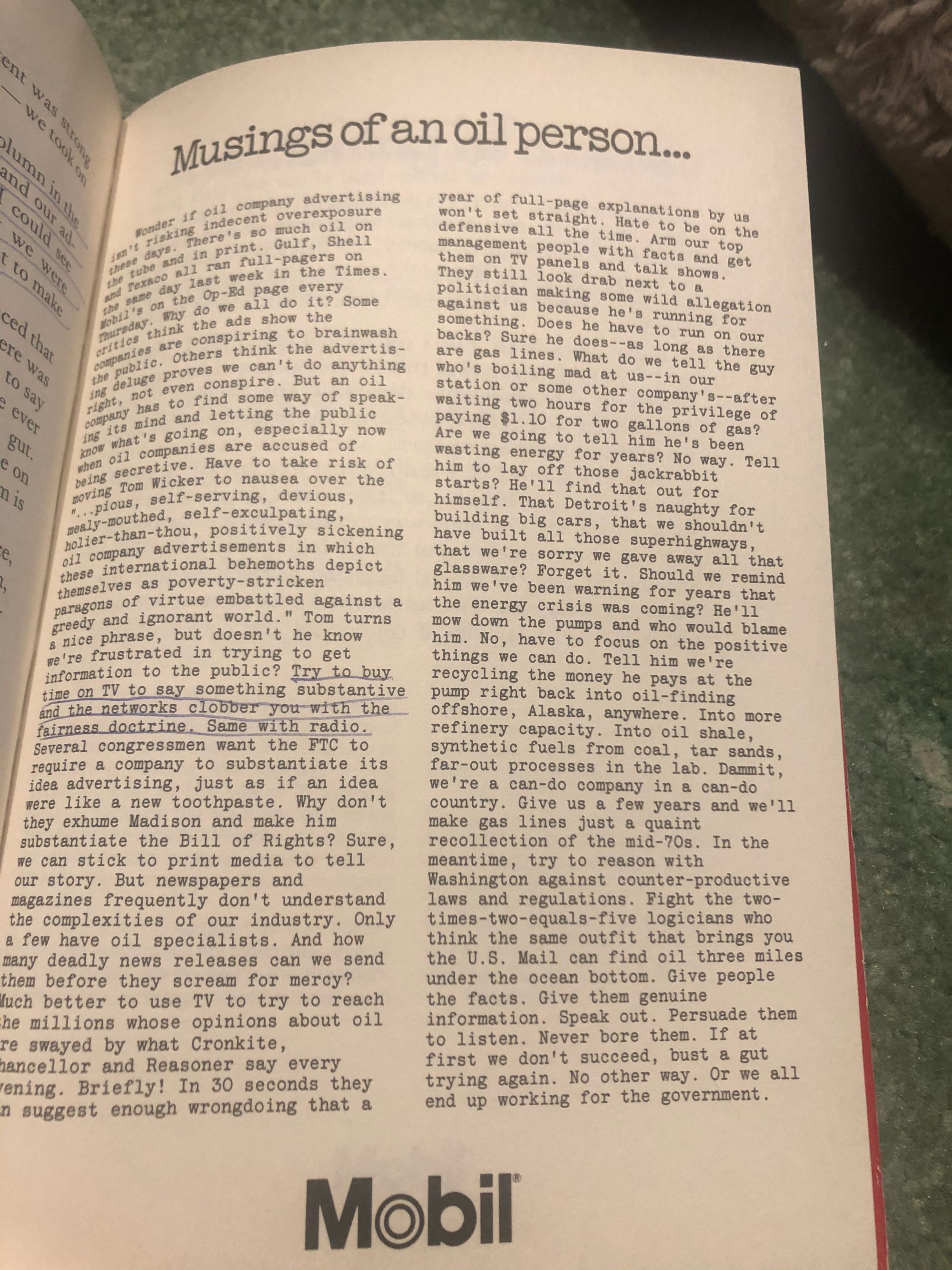
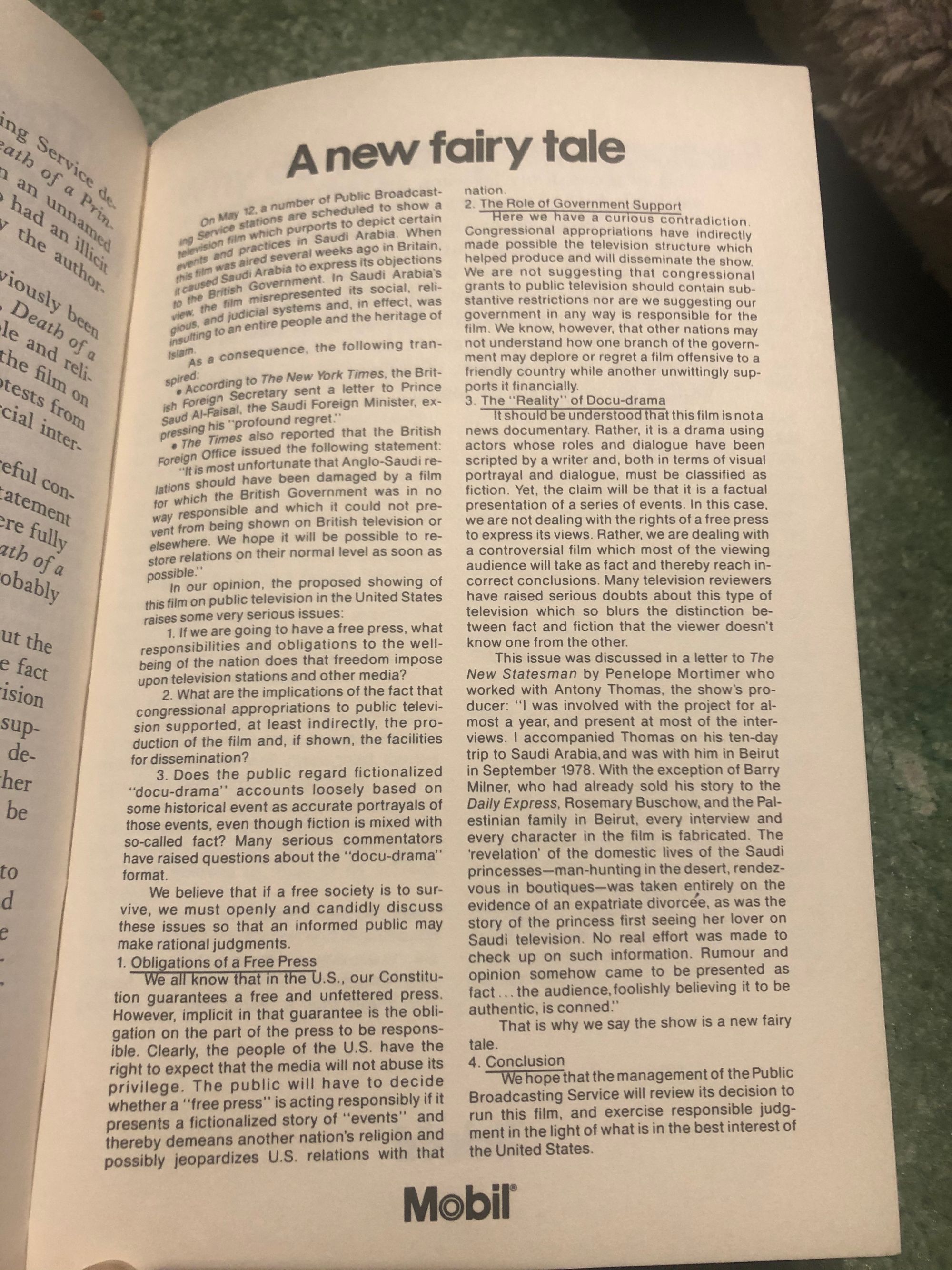
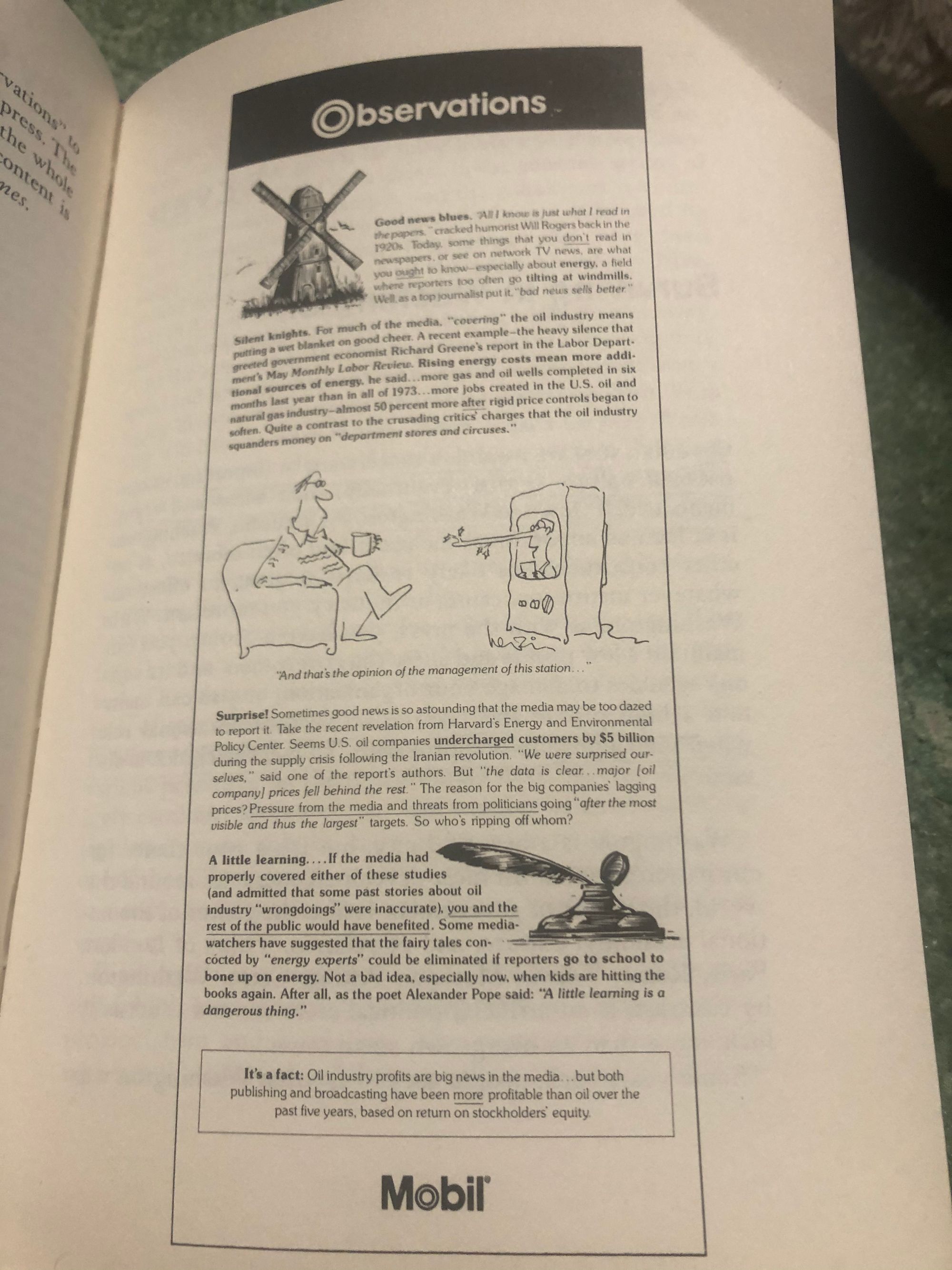
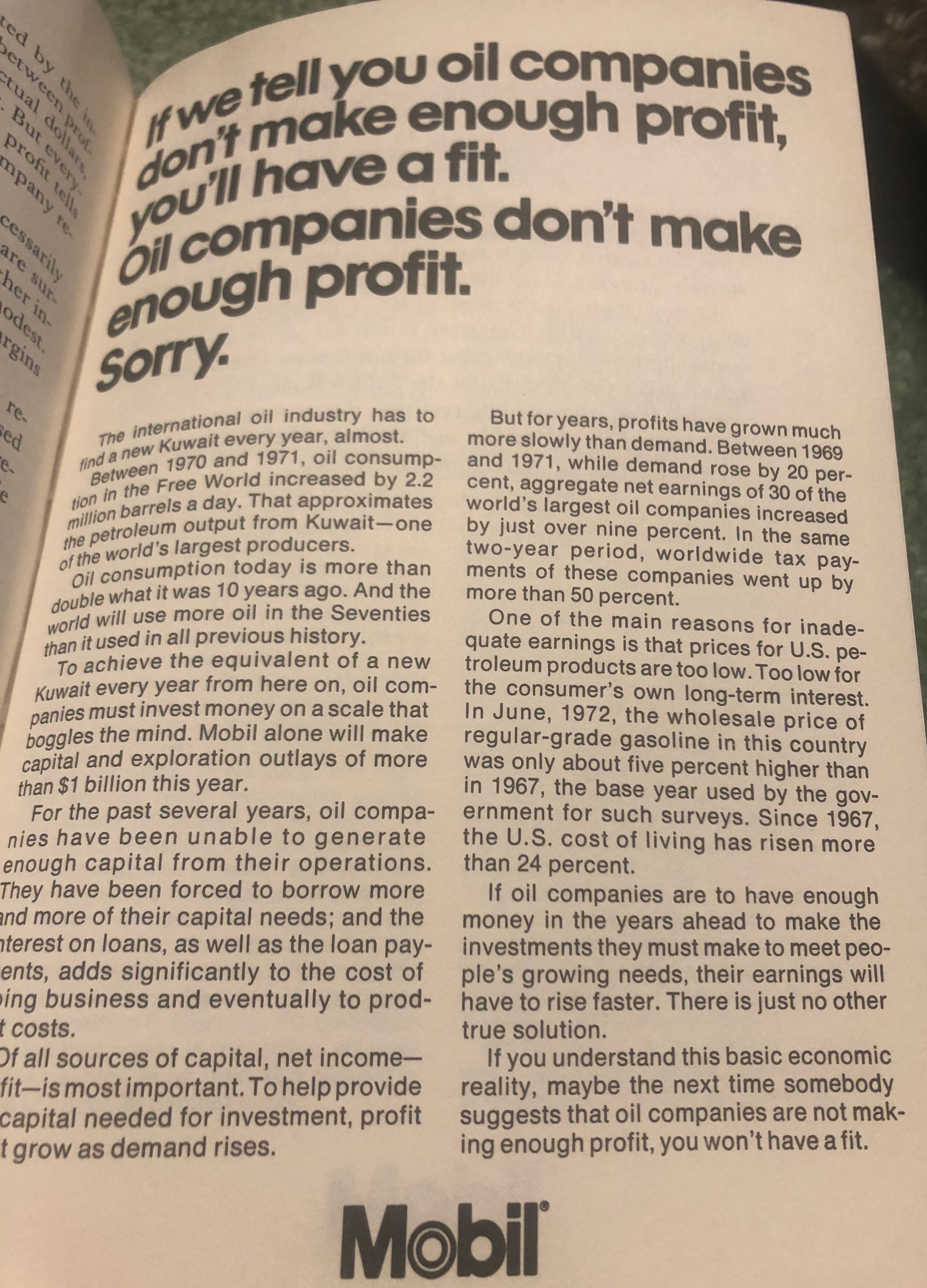
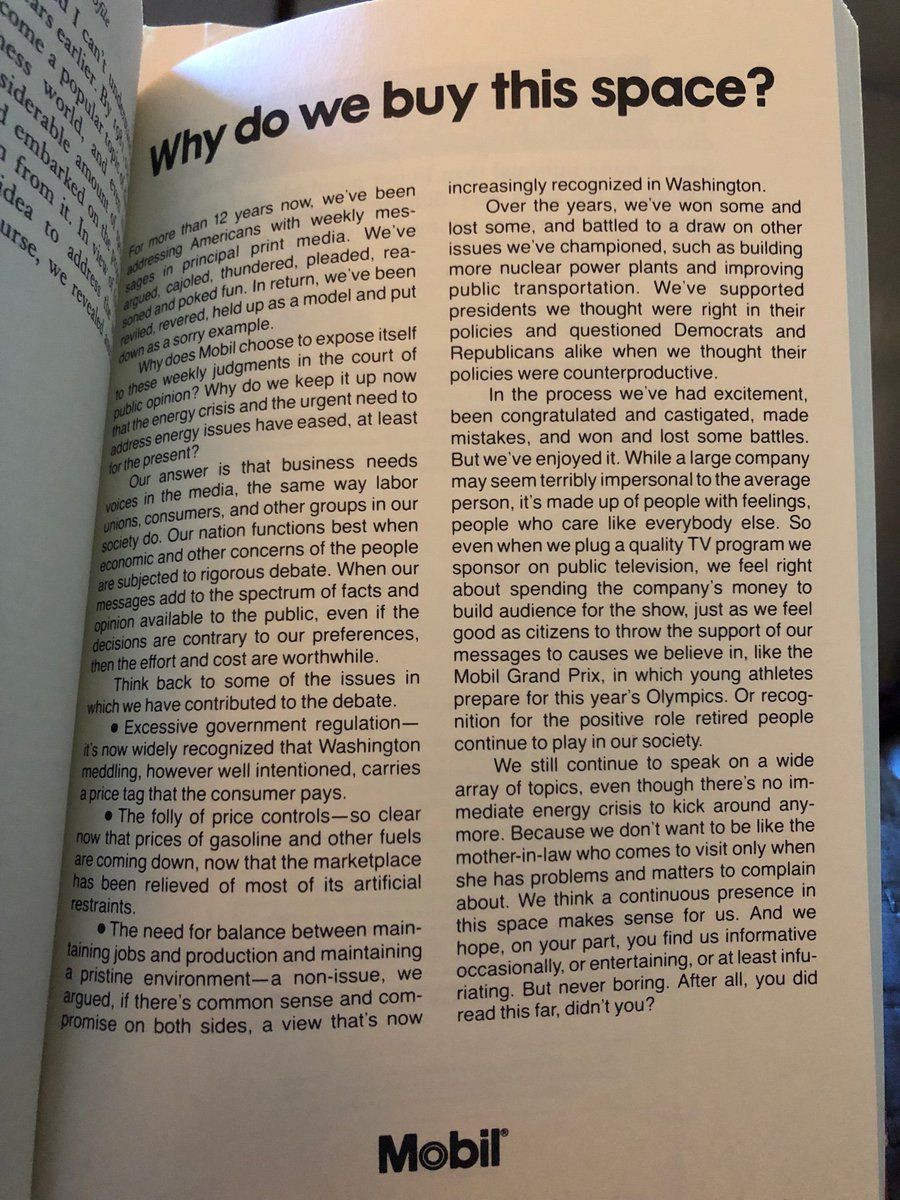
Schmertz's Writings & Interviews
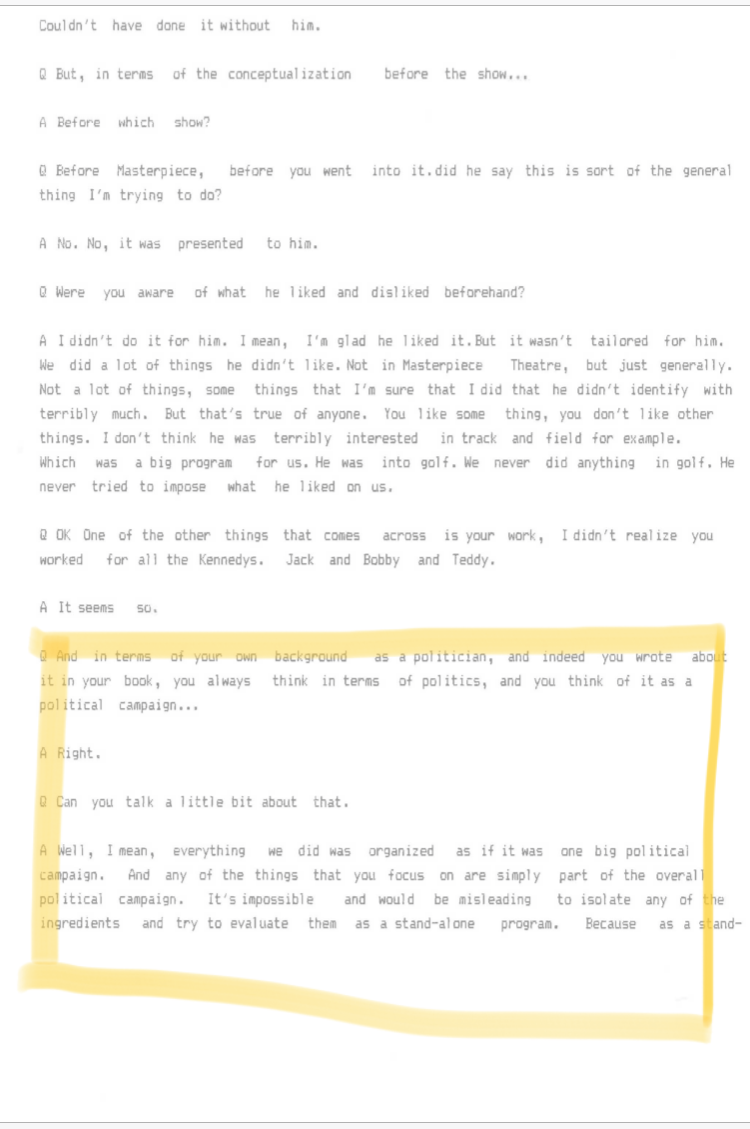
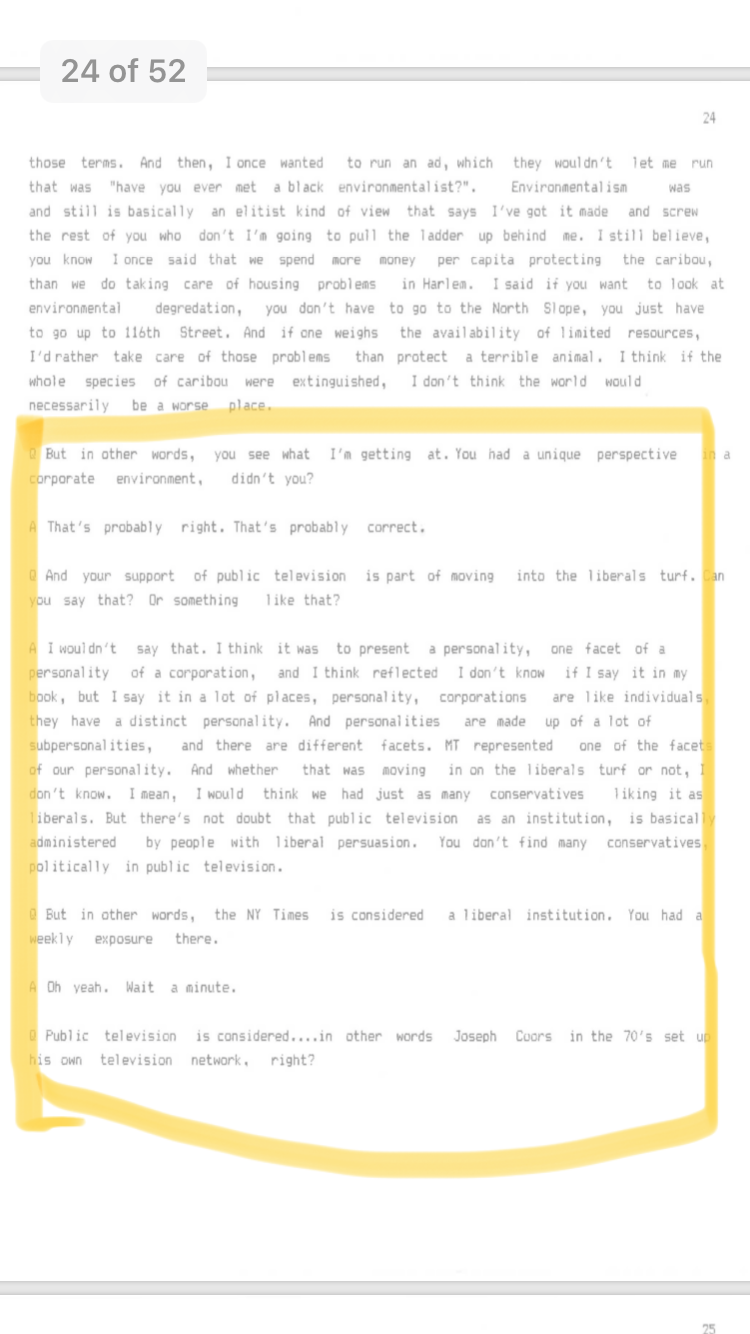
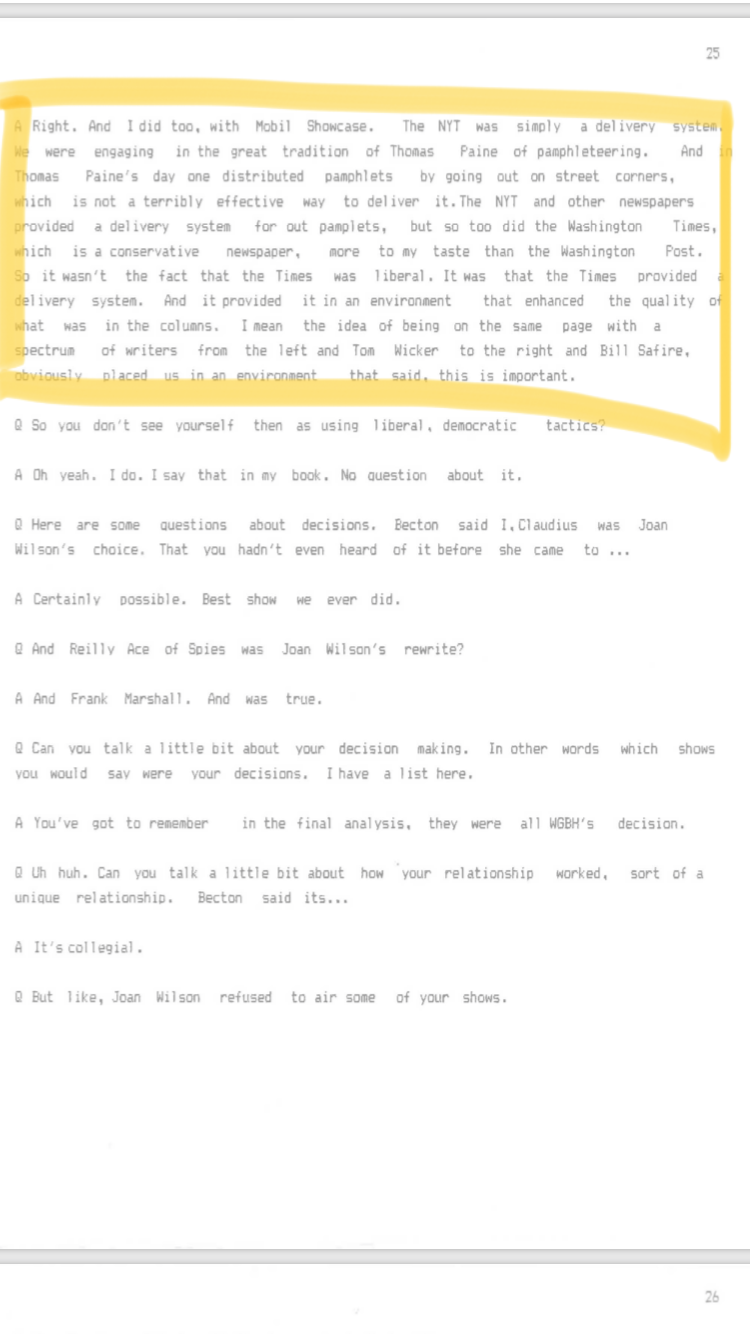
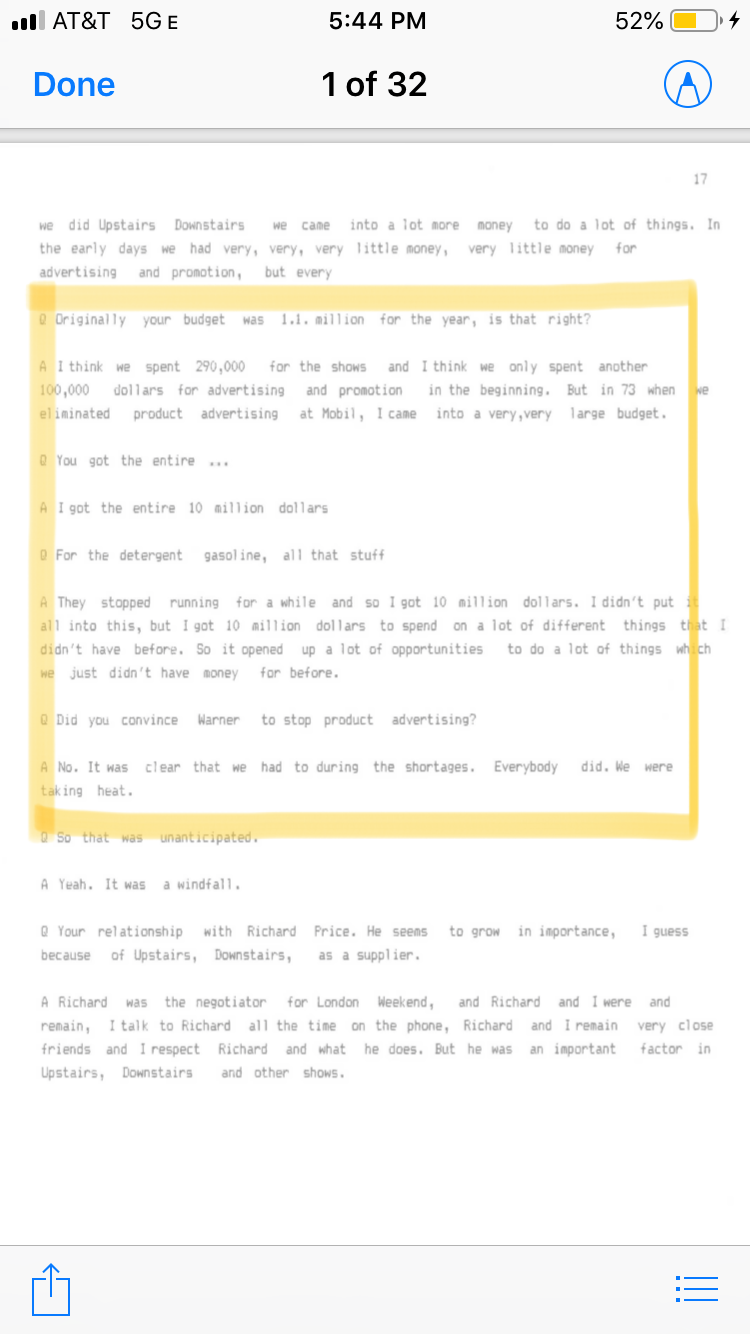
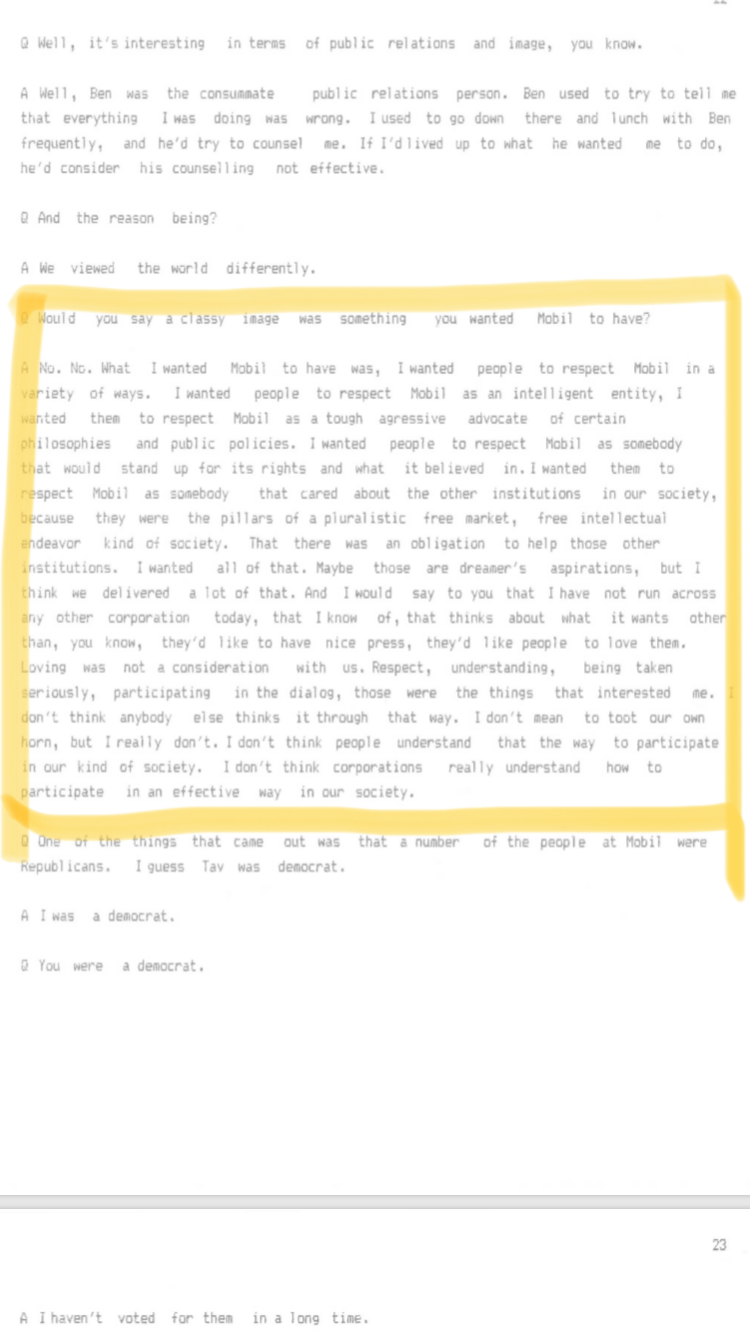
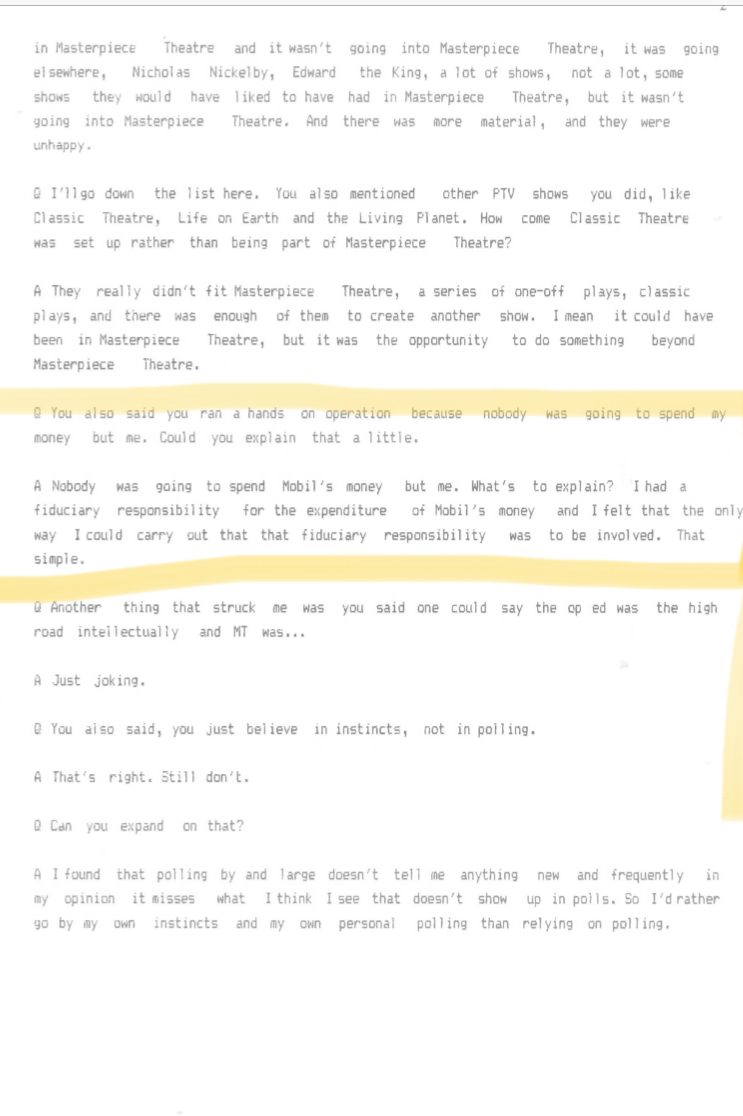
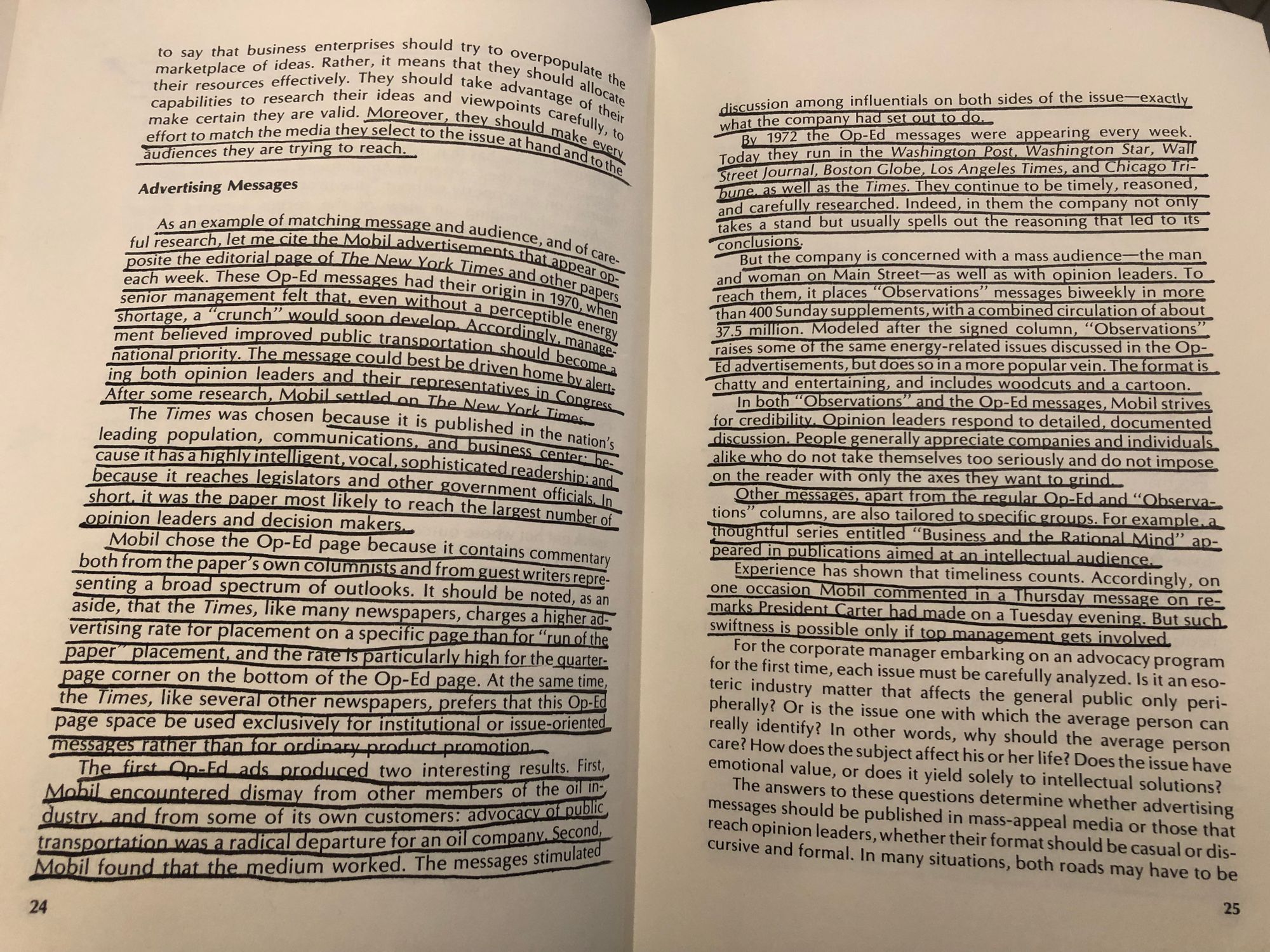
Videos
Eye on the Media Series In 1982, CBS 60 Minutes brought together business executives, journalists, and Herb Schmertz as the PR guy, for a panel discussion on whether the media treats business fairly. There were four episodes:
Part 1:
Part 2:
Part 3:
Part 4:
Interview with the Museum of Public Relations about Corporate Personhood:
CSpan: Roundtable on Corporate Philanthropy This is a fascinating window into how Schmertz viewed corporate giving. In a nutshell: there's no such thing as altruistic corporate philanthropy, nor should there be. Corporations should align their philanthropic work with their bottom lines.
Death of a Princess Controversy In 1980 a documentary aired on 1980 that painted the Saudi Arabian government in an unfavorable light. At the time, Mobil was negotiating with the Saudis to develop oil fields there, and Schmertz was tasked with trying to stop this documentary from coming out. He tried to use his influence with PBS to stop it being aired altogether. When that didn't work, he went on the offensive, running an advertorial and doing interviews like this one about how inaccurate and culturally insensitive the documentary was (it may well have been, we're not weighing in on that, merely showing how the company's business interests were supported by Schmertz's media machine).

Documents:
- 1978 briefing for the American Management Association, “Corporations and the First Amendment”
- 1982 internal Mobil progress report on its advertorial program, uncovered by the Climate Investigations Center
- 1984 article by Schmertz in the journal Communications and Law, entitled “The Press and The Public”
- 1987 Herb Schmertz speech “Patronage, Creativity, and American Culture: Patronage that Pays”given at Fairfield University in Fairfield, CT
- 1991 transcript of interview with Laurence Jarvik for the book Masterpiece Theatre and the Politics of Quality
For more documents illustrating Schmertz's work, visit our Document Cloud folder on him.
